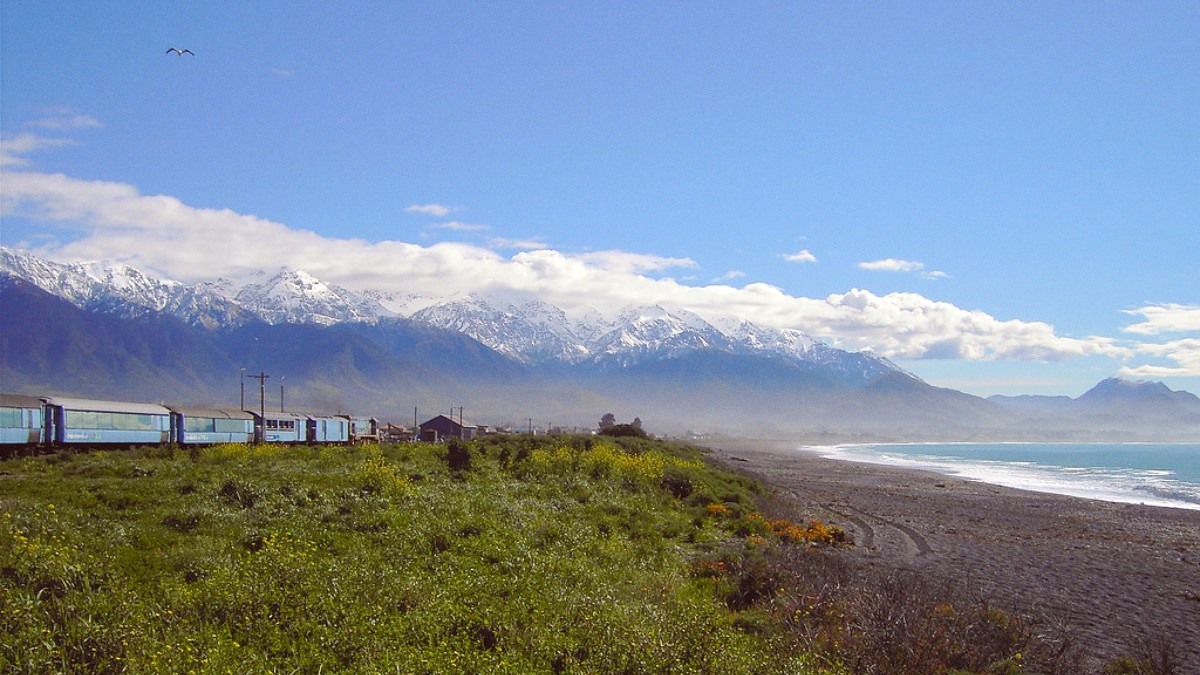
New Zealand
Summer (December-February): These are Kaikoura's warmest months. Average daytime temperatures typically range from 15°C to 25°C (59°F to 77°F). You can expect higher humidity than in winter. Rainfall remains moderate, usually in short bursts. Days are long, providing ample daylight for activities.
Autumn (March-May): Enjoy milder temperatures, generally between 10°C to 20°C (50°F to 68°F). This season often brings less wind and more clear, stable weather. The landscapes around Kaikoura, especially the deciduous trees in sheltered areas, display beautiful autumn colors in May.
Kaikoura's tourism activity varies with the seasons, influencing crowds and prices.
High Season (December-February): The warmest weather supports water activities. Peak wildlife activity occurs. All tours operate fully. Crowds increase, book well in advance.
December-February
Warmest weather, peak wildlife activity, all tours operate, longest daylight hours.
Higher prices for accommodation and tours. Book well in advance due to increased crowds.
March-May & September-November
Milder weather, fewer crowds, lower prices. Good visibility for marine tours. Autumn colors in May, spring wildflowers.
Weather can be unpredictable. Some attractions may have shorter operating hours.
June-August
Fewest crowds and lowest prices. Dramatic scenery with snow-capped mountains. Excellent for whale watching.
Coldest months, shorter daylight. Some tours may have reduced frequency. Ocean conditions can be rougher, with more cancellations.
Kaikoura experiences windy conditions year-round, notably along the coast. Strong winds can affect marine tour departures, sometimes leading to cancellations.
Marine tours depend on both weather and sea conditions. Cancellations due to rough seas are possible at any time of year, but occur more frequently during winter months.
Sperm whales reside in the Kaikoura Canyon throughout the year. Migratory species more likely sighted during summer and autumn.
Warmer months (November to April) for comfortable water. Dusky dolphins are resident year-round.
Enjoyable year-round, warmer clothing for winter.
Drier, milder months of spring, summer, and autumn offer the best conditions. Trails are less muddy.
New Zealand has specific entry requirements for international visitors.
The New Zealand Electronic Travel Authority (NZeTA) applies to citizens of visa-waiver countries (including the United States, Canada, the United Kingdom, and EU countries) arriving by air or cruise ship. The NZeTA is an electronic authorization. Apply online via the official NZeTA website or app.
Prepare these documents for your entry into New Zealand:
New Zealand does not have specific health-related entry requirements for common travelers. Ensure you are generally healthy for international travel.
Costs vary widely based on your travel style and preferences.
The local currency is the New Zealand Dollar (NZD), often denoted as NZ$ or NZD. Major banks and currency exchange services are available in larger cities like Christchurch. ATMs are widely available in Kaikoura town center and accept major credit/debit cards (Visa, Mastercard, Maestro, Cirrus).
Credit cards are widely accepted, specifically Visa and Mastercard, at most accommodations, restaurants, and shops. American Express is less common, so carry an alternative.
Stay in hostel dorms or basic camping. Buy groceries, or choose cheap takeaways. Rely on intercity buses or walking. Limit paid attractions to free walks.
Accommodation: NZD $30-60
Transportation: NZD $10-30
Choose motel rooms, comfortable B&Bs. Eat a mix of cafe meals, mid-range restaurant dinners. Consider a rental car or local shuttles. Include one to two major marine tours.
Meals: NZD $60-100
Activities: NZD $80-200
Opt for boutique hotels, luxury lodges. Enjoy fine dining and gourmet experiences. Utilize private transfers or premium rental cars. Participate in multiple premium marine tours, possibly including scenic helicopter flights.
Accommodation: NZD $200-500+
Premium Transport: NZD $60-150+
| Category | Item | Price Range (NZD) |
|---|---|---|
| Accommodation (per night) | Hostel Dorm Bed | $30-60 |
| Meals | Mid-range Restaurant Dinner | $30-60 per main course |
| Attractions | Whale Watching Tour | $180-200 |
Your well-being is important while traveling. Prepare for common health concerns and understand safety procedures in Kaikoura.
No specific vaccinations are required for entry to New Zealand from most countries. Ensure your routine vaccinations are up-to-date (MMR, DTaP, Polio, etc.).
Consult a healthcare professional for personalized recommendations based on your health history and specific travel plans.
Tap water in Kaikoura and throughout New Zealand is safe to drink. Food safety standards are high. Eat from reputable establishments.
Dial 111 for Police, Fire, or Ambulance (National Emergency Number)
Kaikoura has a Medical Centre (Kaikoura Healthcare) that provides general practitioner services and urgent care during business hours. For serious emergencies or specialist care, patients transfer to Christchurch Hospital, the nearest major facility. A pharmacy is available in Kaikoura town center.
Keep these numbers readily accessible:
Kaikoura Medical Centre: +64 3 319 6500 | Non-Emergency Police: 105
New Zealand has very high UV levels due to a thinner ozone layer. Sun protection is always needed, even on cloudy days. Apply Reef Safe Sunscreen SPF 50+ frequently, wear a wide-brimmed hat, good sunglasses, and protective clothing.
Prevalent, especially near water and in shaded, damp areas. Their bites are itchy. Use strong insect repellent containing DEET or Picaridin, and wear long sleeves and trousers when outdoors, notably at dawn and dusk.
Common on marine tours due to ocean swells. Consider medication like Dramamine or natural remedies (e.g., ginger) before tours. Sit near the middle of the boat for stability.
New Zealand is located on the "Pacific Ring of Fire" and experiences frequent seismic activity. Kaikoura was significantly affected by a major earthquake in 2016.
Travel insurance is highly recommended for all visitors to New Zealand. It should cover:
Including emergency evacuation and repatriation. Healthcare costs for non-residents can be high.
Covers unforeseen events that might force you to cancel or shorten your trip.
Protection for your belongings and coverage if you cause damage or injury to others.